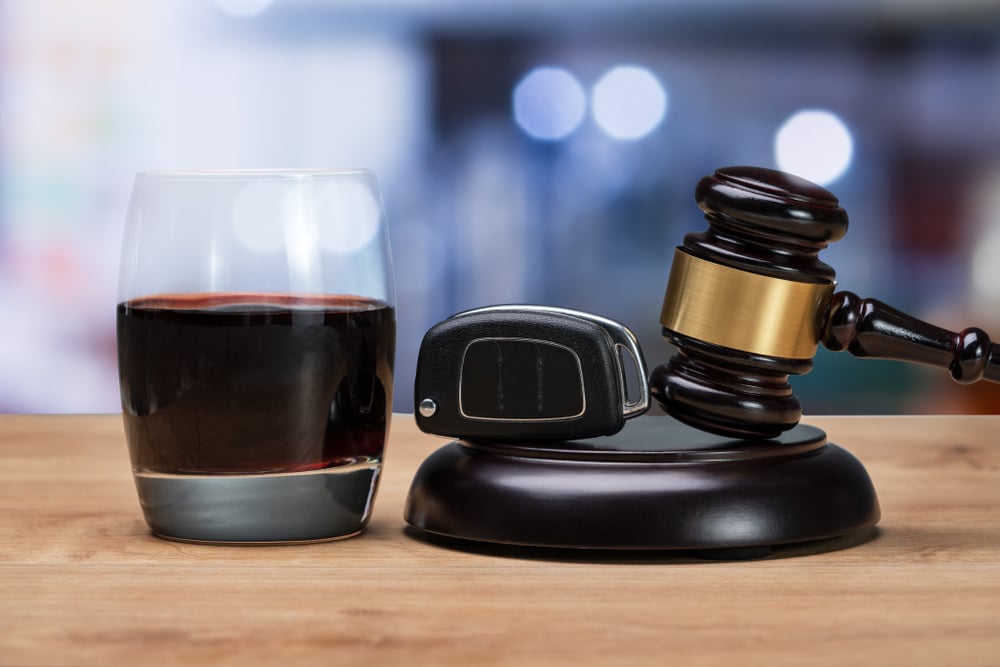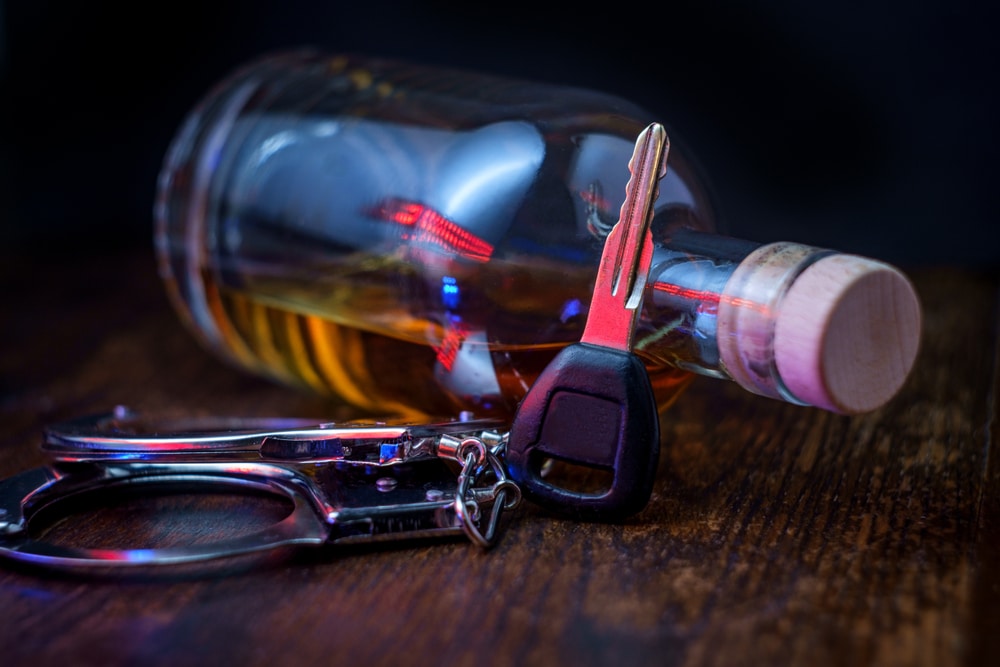
In Texas, driving while intoxicated (DWI) is treated as a serious criminal offense that poses significant risks to public safety. The state maintains some of the nation’s strictest DWI laws, with blood alcohol concentration (BAC) limits set at 0.08% for regular drivers and 0.04% for commercial drivers. Texas follows a “zero tolerance” policy for drivers under 21, making it illegal for them to drive with any detectable amount of alcohol in their system.
Texas law enforcement agencies employ a multi-faceted approach to DWI prevention and enforcement, combining regular patrols, sobriety checkpoints, and public education campaigns. The state’s efforts have resulted in a gradual decrease in alcohol-related traffic incidents over the past decade, though DWI remains a significant public safety concern.

0.08% or higher for regular drivers and 0.04% for commercial drivers

Yes

90 days

Conditional

Yes (0.15%+)
Texas law enforcement officials are granted broad authority to investigate and arrest suspected drunk drivers. Officers may initiate traffic stops based on reasonable suspicion of impaired driving, such as erratic driving patterns, traffic violations, or other observable behaviors. Once stopped, officers may conduct field sobriety tests and use preliminary breath testing devices to establish probable cause for arrest.
The state employs a robust network of specially trained officers and advanced detection technologies to identify and apprehend impaired drivers. This includes Drug Recognition Experts (DREs) who are qualified to identify drug-induced impairment and the use of mobile blood testing units during peak enforcement periods.
Law enforcement agencies regularly conduct targeted enforcement campaigns, particularly during holidays and special events when impaired driving incidents typically increase. These efforts are supported by state and federal funding, allowing for increased patrol presence and specialized DWI enforcement units.
Texas operates on a graduated penalty system for DWI offenses, with punishments becoming progressively more severe for repeat offenders. First-time offenders face potential jail time of 3 to 180 days, fines up to $2,000, and license suspension for up to one year. Second offenses within ten years carry increased jail time of up to one year, fines up to $4,000, and longer license suspensions.
Additional penalties may include mandatory installation of ignition interlock devices, community service hours, and completion of alcohol education programs. Enhanced penalties apply for aggravating factors such as having a child passenger, causing injury or death, or having an exceptionally high BAC level.
Texas also employs an administrative license revocation program, separate from criminal proceedings, which can result in immediate license suspension upon arrest for DWI. Refusal to submit to chemical testing triggers automatic license suspension under implied consent laws.
Certain circumstances trigger enhanced penalties under Texas DWI laws. These include DWIs involving child passengers (under 15 years), which is classified as a state jail felony punishable by up to two years in prison. Cases involving serious bodily injury (intoxication assault) or death (intoxication manslaughter) carry significantly higher penalties, including prison terms up to 20 years.
Commercial drivers face stricter regulations and harsher consequences, including potential lifetime disqualification from operating commercial vehicles after multiple offenses. Additionally, open container violations and refusing chemical tests result in additional penalties and longer license suspensions.
Texas law enforcement utilizes a comprehensive approach to DWI detection and prevention. Officers receive specialized training in standardized field sobriety testing (SFST) and are equipped with portable breath testing devices. The state maintains dedicated DWI task forces in major metropolitan areas and employs both marked and unmarked vehicles for enforcement.
Advanced surveillance technologies, including in-car video systems and body-worn cameras, document interactions with suspected impaired drivers, providing crucial evidence for prosecution. Law enforcement agencies also conduct regular sobriety checkpoints and “no-refusal” initiatives where judges are on call to issue blood draw warrants for suspects who refuse chemical testing.
Texas employs state-of-the-art technology for detecting impaired drivers. This includes evidential breath testing devices maintained under strict calibration protocols, mobile blood testing units, and advanced roadside screening devices. The state’s breath testing program is supervised by the Texas Department of Public Safety and must meet rigorous accuracy standards.
Drug recognition technology continues to evolve, with law enforcement agencies increasingly utilizing oral fluid testing devices and other emerging technologies to detect drug-impaired driving. The state maintains certified laboratories for analyzing blood samples and employs forensic toxicologists who testify as expert witnesses in DWI cases.
Texas maintains a comprehensive network of court-approved treatment providers offering various intervention and rehabilitation programs. These range from educational courses for first-time offenders to intensive outpatient and residential treatment programs for repeat offenders or those with severe substance use disorders.
Treatment programs typically combine education, counseling, and behavioral modification techniques. Many incorporate evidence-based practices such as cognitive behavioral therapy, motivational interviewing, and relapse prevention strategies. Program completion is often mandatory for license reinstatement and may be required as a condition of probation.
The state operates under a structured mandatory treatment framework for DWI offenders. First-time offenders must complete a 12-hour DWI education program, while repeat offenders are required to complete a more intensive 32-hour DWI intervention program. Failure to complete required programs results in continued license suspension and possible probation violations.
Additional requirements may include substance abuse evaluation, regular drug and alcohol testing, and participation in victim impact panels. The framework emphasizes both rehabilitation and accountability, with progress monitored by probation officers and treatment providers.


Texas utilizes various monitoring systems to ensure offender compliance with court-ordered requirements. These include regular reporting to probation officers, random drug and alcohol testing, and electronic monitoring devices. Ignition interlock devices, equipped with cameras and GPS capabilities, provide real-time monitoring of compliance with alcohol restrictions.
The state maintains a centralized database tracking DWI offenders’ compliance with court orders, treatment requirements, and monitoring conditions. Violations can result in immediate sanctions, including jail time, extended probation, or revocation of conditional licenses.
The administrative process begins immediately upon arrest, with officers seizing the driver’s license and issuing a temporary driving permit. Drivers have 15 days to request an administrative license revocation (ALR) hearing to contest the suspension. This process runs parallel to but separate from criminal proceedings.
The Texas Department of Public Safety oversees license suspensions, reinstatements, and compliance with administrative requirements. Offenders must satisfy numerous conditions, including payment of reinstatement fees, completion of required programs, and installation of mandated devices before license reinstatement.
Administrative procedures involve multiple state agencies and require careful coordination. The process includes scheduling and conducting ALR hearings, processing license suspensions and reinstatements, and maintaining records of compliance with administrative requirements. Offenders must navigate complex paperwork requirements and deadlines throughout the process.
The state maintains strict timelines for administrative actions, with specific appeal procedures and requirements for requesting occupational licenses during suspension periods. Failure to meet deadlines or comply with administrative requirements can result in extended suspension periods and additional penalties.
DWI cases proceed through a specialized court system that handles both misdemeanor and felony cases. The process typically begins with arraignment, followed by pre-trial conferences, motion hearings, and either plea negotiations or trial. Courts may establish specialized DWI dockets to handle high-volume caseloads more efficiently.
Defendants have various procedural rights, including the right to challenge evidence, question witnesses, and appeal convictions. Courts must follow strict protocols regarding the admission of scientific evidence, particularly concerning chemical test results and expert testimony.
Multiple state agencies play crucial roles in Texas DWI enforcement and administration:
– Texas Department of Public Safety (DPS): Oversees driver licensing, chemical testing programs, and maintains offense records
– Texas Department of Transportation (TxDOT): Coordinates public safety campaigns and compiles accident statistics
– Texas Commission on Environmental Quality (TCEQ): Certifies breath testing equipment
– Texas Department of State Health Services: Licenses treatment providers and programs
These agencies coordinate efforts through various inter-agency agreements and shared databases to ensure comprehensive DWI enforcement and treatment programs.
Texas participates in the Driver License Compact, sharing DWI conviction information with other states. Out-of-state convictions count toward total offenses in Texas, and the state honors other states’ license suspensions. Commercial drivers face federal regulations that apply across state lines.
Border considerations with Mexico create unique challenges for enforcement and prosecution. The state maintains special protocols for handling cases involving international drivers and coordinates with federal agencies on cross-border issues.
Texas law enforcement must navigate various jurisdictional considerations, including:
– Tribal lands and sovereign nation territories
– Military installations and federal properties
– International bridges and border zones
– Multi-jurisdictional task forces and enforcement operations
Special agreements and protocols govern enforcement activities in these areas, often requiring coordination between multiple agencies and jurisdictions.
DWI offenses generate significant economic costs for both offenders and the state. Individual offenders face immediate expenses including fines, court costs, attorney fees, and increased insurance premiums. Additional costs may include installation and maintenance of ignition interlock devices, treatment program fees, and lost wages due to license suspension or incarceration.
The state incurs substantial costs for law enforcement, court operations, incarceration, and supervision of offenders. These expenses are partially offset by fines and fees but represent a significant burden on public resources.


The societal impact of DWI extends beyond direct economic costs. Deaths, injuries, and property damage from alcohol-related crashes create lasting effects on families and communities. Healthcare costs, emergency services, and long-term care for injury victims contribute to the overall societal burden.
Lost productivity, increased insurance rates, and strain on social services represent additional societal costs. The state invests heavily in prevention and education programs aimed at reducing these impacts.
Texas continues to evaluate and update its DWI laws and procedures. Current trends include:
– Lowering BAC limits for all drivers
– Expanding mandatory ignition interlock requirements
– Increasing penalties for high-BAC offenses
– Strengthening drug-impaired driving laws
– Implementing new technologies for detection and monitoring
The legislature regularly considers proposals to enhance enforcement capabilities and strengthen penalties for repeat offenders.
Texas is increasingly incorporating advanced technologies in DWI enforcement and monitoring:
– Automated license plate readers
– Real-time data sharing between agencies
– Electronic warrant systems
– Advanced alcohol monitoring devices
– Predictive analytics for enforcement deployment
These technological advances improve detection capabilities and streamline administrative processes while ensuring constitutional protections remain intact.
Current challenges and emerging issues include:
– Addressing drug-impaired driving, particularly with cannabis legalization in neighboring states
– Implementing new testing methods for drug detection
– Managing ride-sharing impacts on impaired driving patterns
– Adapting to autonomous vehicle technology
– Addressing privacy concerns with new monitoring technologies
The state continues to adapt policies and procedures to address these evolving challenges.
Texas maintains comprehensive prevention and education initiatives:
– School-based education programs
– Public awareness campaigns
– Professional driver education requirements
– Server training programs
– Community-based prevention initiatives
These programs receive both state and federal funding and are regularly evaluated for effectiveness.
DWI convictions can have significant professional impacts:
– Commercial driver disqualification
– Professional license consequences
– Employment restrictions
– Background check implications
– Insurance requirements for work vehicles
Some professions have mandatory reporting requirements and specific protocols for handling DWI convictions.
Texas regularly evaluates treatment program outcomes:
– Recidivism rates by program type
– Cost-effectiveness analysis
– Long-term success indicators
– Program completion rates
– Factors influencing treatment success
Results inform program modifications and resource allocation decisions.
DWI convictions significantly impact insurance coverage and costs:
– Mandatory SR-22 insurance requirements
– Premium increases lasting 3-5 years or longer
– Potential policy cancellations
– High-risk insurance requirements
– Commercial insurance implications
Insurers may require additional monitoring or restrictions for coverage after DWI convictions.


Texas requires SR-22 insurance certificates for DWI offenders:
– Minimum three-year requirement
– Increased liability coverage requirements
– Immediate notification of policy changes
– Strict compliance monitoring
– Penalties for lapses in coverage
SR-22 requirements apply to both owned and non-owned vehicles and must be maintained even if the offender moves to another state.
DWI convictions create numerous challenges for offenders:
– Transportation difficulties during suspension
– Employment limitations
– Housing restrictions
– Travel restrictions
– Financial strain
– Social stigma
Support services and resources are available to help offenders address these challenges and maintain stability during the recovery process.
Texas maintains one of the nation’s most comprehensive DWI enforcement and prevention systems, combining strict laws, advanced technology, and extensive treatment programs. The state’s approach balances public safety concerns with rehabilitation opportunities, while addressing emerging challenges through regular policy updates and technological innovations.
The economic and societal impacts of DWI remain significant, driving continued investment in prevention, enforcement, and treatment programs. Success requires coordination between multiple agencies and stakeholders, along with ongoing evaluation and adaptation of programs and policies.
The state’s commitment to reducing impaired driving is reflected in its comprehensive approach to enforcement, treatment, and prevention. This includes maintaining strong penalties while providing opportunities for rehabilitation and recovery. Regular program evaluation and policy updates ensure the system continues to evolve and improve.
Future developments will likely focus on addressing emerging challenges such as drug-impaired driving and new vehicle technologies, while maintaining effective existing programs and procedures. The state’s experience demonstrates the importance of a balanced, comprehensive approach to addressing impaired driving.
At DUI 101, our mission is to empower you with the knowledge needed to make informed decisions during this challenging time. Explore our articles and guides to better understand your situation and the steps ahead.
© 2024 Chapman SEO LLC. This website is for educational and informational purposes only. All content is created using AI technology and maintained by non-lawyers and should not be considered legal advice. The information provided is general in nature and may not be suitable for your specific situation. Always consult with a qualified legal professional for advice regarding your individual circumstances. We do not create attorney-client relationships through this website. By using this site, you acknowledge that you have read and understand these terms.